| Chromosome | 19 |
| Position | 49206416 |
| Gene | FUT2 |
AA (TT) AG (TC) GG (CC)50.2 50.2% 35.3 35.3% 14.5 14.5%
The G (C) allele is associated with:
- Women homozygous for the G (C)allele had higher B(12) levels in the blood (Ref). This is thought to be caused by increased B(12) absorption.
The A (T) allele is associated with:
- The A (T) allele is more likely to contract H pylori (Ref) The H-antigen synthesized by FUT2 allows H. pylori to take hold in the gut (Ref).
- Absorption of B12 requires the secretion of intrinsic factor (IF) from the gastric cells, binding of IF to vitamin B12 and a functional gastrointestinal absorption system.
- Possible malabsorption of vitamin B12 (Ref).
- Exploring a causal role of DNA methylation in the relationship between maternal vitamin B12 during pregnancy and child’s IQ at age 8, cognitive performance and educational attainment: a two-step Mendelian randomization study.
- Genome-wide association study of metabolic traits reveals novel gene-metabolite-disease links.
- Genetic variants influencing biomarkers of nutrition are not associated with cognitive capability in middle-aged and older adults.
- Vitamin B-12 status during pregnancy and child’s IQ at age 8: a Mendelian randomization study in the Avon longitudinal study of parents and children.
- The causal roles of vitamin B(12) and transcobalamin in prostate cancer: can Mendelian randomization analysis provide definitive answers?
- Genome-wide significant predictors of metabolites in the one-carbon metabolism pathway.
- Common variants of FUT2 are associated with plasma vitamin B12 levels.
EXPRESSION CONTROL
Decrease activity ↓
- (+)-JQ1 compound (Ref)
Animal Studies:
Increase activity ↑
Can work both ways ↑↓
Clinical tips
Non-secretors have lower levels of bifidobacteria and would benefit from supplementing with Bifidobacteria strains of probiotics. Rs601338, AA (or TT) genotype are non-secretors and generally have significantly lower amounts of bifidobacteria.
Oligosaccharides are a carbohydrate that consists of three to nine monosaccharides (simple sugar). There are three types of oligosaccharides that can be helpful prebiotics for people affected by the FUT2 gene: fructooligosaccharides (FOS), galactooligosaccharides (GOS), and inulin. You can get oligosaccharides as prebiotic supplements and they are also found in foods like leeks, Jerusalem artichokes, onions, chicory root, and oats. If you suffer from SIBO however, these may be counterproductive.
Estrogen increases FUT2 expression (R).
FUT2 is involved in the formation of an immune complex, H antigen. FUT2 forms a sugar- polymer known as oligosaccharide (a few monosaccharides covalently linked), which then becomes “food” for gut flora. FUT2 regulates the expression of certain “blood-group antigens”, and as such, directly influence bowel flora concentrations. Approximately twenty percent of the population has FUT2 gene mutations.
Carriers of the FUT2 genetic mutations have been shown to have lower concentrations of the gut microbe, bifidobacterium; a key beneficial microbial colony that lines the gut. Carriers of FUT2 genetic mutations confer a greater predisposition towards Crohn’s disease and elevated serum concentrations of vitamin B-12. These FUT2 “non-secretors” however appear to have a greater resistance towards certain pathogenic infections such as H Pylori, as well as protection against certain viruses, but there is conflicting data with the norovirus. So there are benefits and downsides to being both: non secretor and secretor.
Homozygous FUT2 SNPs – Dietary adjustments may be important. Avoiding grains, dairy, legumes, eggs, nuts, yeast, and soy can prove to be helpful, but there are exceptions to eliminating one or more food categories.
Check vitamin B6, magnesium, and zinc levels as they are depleted by higher oxalate foods. Unfortunately, they are found in some healthy leafy greens, sweet potatoes, and more. Great Plains OATs test can shed some light on whether an oxalate issue exists and whether the oxalate issue is gut yeast driven (and too much vitamin C consumption), genetically driven, or simply dietary driven (e.g., juicing greens daily) and individual is depleted of nutrients for oxalate-breakdown enzymes to do their job.(Ref)
Besides oxalates, lectins are another source of “anti-nutrients” used by the plant kingdom to protect themselves from predators. They also pose a problem for many with FUT2 SNPs.
Common polymorphisms in FUT2 define the vitamin B-12 plasma level. Vitamin B-12 is necessary for the formation of red blood cells, DNA synthesis during cell division, and maintenance of the myelin nerve sheath, among other functions.
Approximately fifteen percent of the population have homozygous FUT2 rs1047781 and/or rs602662 polymorphisms and are referred to as, “non-secretors of H antigen”.
